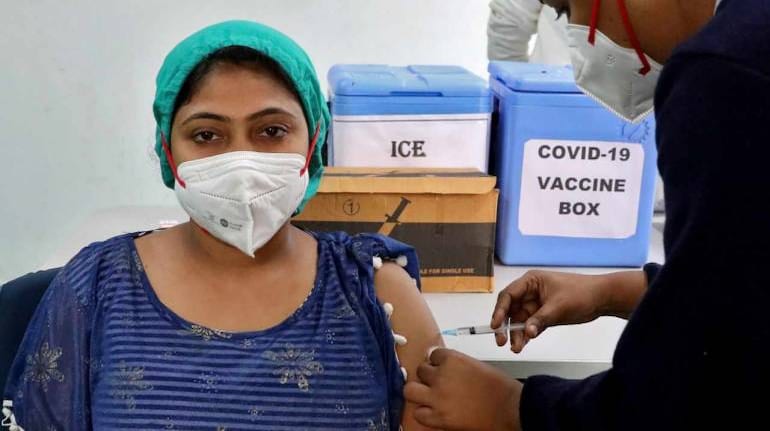



The central government on March 11 announced that it has renegotiated the price of the COVID-19 vaccine and the reduced price is significantly lower than the present one.
We have re-negotiated the price for the vaccine. The re-negotiated price is significantly lower: Health Secretary Rajesh Bhushan on COVID19 situation in the country— ANI (@ANI) March 11, 2021
Addressing a press conference, Union Health Secretary Rajesh Bhushan said: "We have renegotiated the price for the vaccine. The earlier price was Rs 210, including taxes. After that, we have renegotiated the price, which is significantly lower than Rs 200."
Minister of State for Health Ashwini Choubey recently said in a written reply at Rajya Sabha that the manufacturer of Covishield (Serum Institute of India) has agreed to supply 10 crore doses at a price of Rs 150 plus GST per dose for priority group of population above 60 years and those aged between 45 and 60 years with comorbidities, reported PTI.
So far, the government has allowed private health facilities to charge up to Rs 250 for one dose of the vaccine.
Follow our LIVE blog for the latest updates of the coronavirus pandemic
Covishield, along with Covaxin, is one of the two COVID-19 vaccines that have been granted emergency use authorisation in India. The vaccine was developed by the University of Oxford and drug manufacturer AstraZeneca, and is being manufactured in India by Pune-based Serum Institute of India.
Responding to a question on the Rajasthan government's claim that there is a shortage in COVID-19 vaccine stock, Bhushan said the central government regularly monitors the availability of vaccine supply in all states and UTs and their consumption on a daily basis.
The vaccine stock availability is reviewed every morning.
"Data of the usage and consumption of COVID-19 vaccine comes from states. The central government does not vaccinate people. It just makes the vaccines available free of cost in government facilities and at a fixed rate in private health facilities.
"According to data available as part of the daily review meeting held this morning, and even three days ago, there was no shortage of COVID-19 vaccine in any state in the country," he said.
In response to a question on whether the government has a timeline in mind for phase 3 of the vaccination drive and who gets included in that, NITI Aayog member (Health) Dr V K Paul said, "We are now focused on the relatively large group of individuals above the age of 60 as well as those aged and those aged 45-60 with comorbidities. We are building momentum to cover this significantly large group."
Click here for Moneycontrol’s full coverage of the coronavirus pandemic
"We will see progress and moving forward, yes, further increase in the circle of those who are eligible will be considered," he added.
"As on March 11, till 1:00 pm, 2,56,90,545 vaccine doses have been administered across the country," Bhushan said, adding that 71 percent vaccine doses were administered in public health facilities and 28.77 percent at private facilities.
(With Inputs from PTI)
Discover the latest Business News, Sensex, and Nifty updates. Obtain Personal Finance insights, tax queries, and expert opinions on Moneycontrol or download the Moneycontrol App to stay updated!